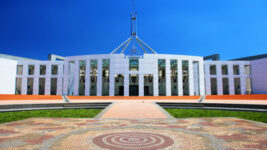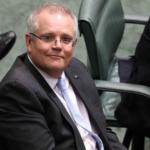The Crime of Concealing a Serious Indictable Offence

Just when the publicity surrounding Brittany Higgins’ sexual assault allegation had started to settle the Prime Minister has received two letter which have the potential to change the Liberal Party as we know it.
The first was a stern letter from the Commissioner of the Australian Federal Police (AFP), warning the Prime Minister that those in positions of power in Canberra are not a ‘law unto themselves’ and that any “failure to report alleged criminal behaviour … or choosing to communicate or disseminate allegations via other means, such as through the media or third parties, risks prejudicing any subsequent police investigation.”
In the same letter, Commissioner Kershaw stressed that politicians should refer information relating to alleged sexual offences to the AFP without delay, “taking into account the rights and privacy of the victim… regardless of which jurisdiction… the alleged conduct occurred.”
Commissioner Kershaw was, of course, referring to The PM’s handling of the alleged sexual assault of Brittany Higgins.
But twenty-four hours later, news emerged that the Prime Minister received another distressing letter last week. Copies were also sent to both Labor Senator Penny Wong, and Greens senator Sarah Hanson-Young.
The letter detailed an allegation of historical rape, by a man who is currently a Federal Cabinet Minister, relating to a time before he entered Parliament. It says that a 16 year old woman was anally raped by the man in 1988, a trauma that plagued her for her entire adult life.
Tragically, the woman committed suicide last year, but had reported the offence to both the South Australian Police and the New South Wales child abuse and sex crimes squad. The deceased woman’s friends say they don’t believe the alleged rape was the sole reason behind her suicide, but that it had been hard for her to heal considering that the man she alleged sexually abused her was constantly in the media.
The letter urged Scott Morrison to establish an independent investigation into the alleged sexual assault.
Policy of damage control and cover ups
The Liberal Party’s PR machine has a long history of implementing tactics such as ‘damage control,’ ‘coverups’ ‘side-stepping’ and ‘stone-walling’ but the public will be expecting more from the Prime Minister than was his response to the incident involving Brittany Higgins in which he admitted that speaking to his wife helped him to ‘understand things’.
The PM has also, in recent days, disappointingly side-stepped any questions about a quip made by Peter Dutton who admitted that although he was informed of the alleged rape claim by Brittany Higgins by the AFP several days before it was public, he chose not to tell the Prime Minister.
In explaining what he knew, the Home Affairs Minister told media, he was not informed of the ‘he said / she said’ details of the Brittany Higgins Case, igniting the ire of many with another glaring display of being a man in a position of significant power who just doesn’t seem to understand the severity of the allegations.
What’s more, by the time Mr Dutton spoke to media, it was actually more than one ‘she’ who said. By then five women in total had made similar claims of sexual assault and sexual harassment by the same man.
Should the Federal Minister be stood aside?
What is clear is that a serious allegation has been aired about one of Scott Morrison’s ministers, and the Prime Minister may find himself in a position where he has no choice but to act.
He might not be able to publicly name the Federal Minister who the allegations have been levelled at, (for legal reasons) but Mr Morrison also has a responsibility towards the other males in cabinet too, who are all currently under public scrutiny.
The PM has so far rebuffed calls from Labor to stand the alleged perpetrator aside, instead stressing that the ministerial standards only require a minister to step aside if they become “the subject of an official investigation of alleged illegal or improper conduct”.
For now, as per the request and guidelines sent by Commissioner Kershaw, the AFP has also been sent a copy of the letter detailing the historical sex assault allegation and has issued a statement saying it would liaise with relevant state authorities, but would be making no further comment.
Friends of the alleged victim say they hope that she will eventually receive justice, but given that she is no longer alive, it’s a long shot. NSW Police suspended their inquiry because of her death, while SA Police are preparing a report for the coroner.
With the authorities now investigating both the historical allegations and the allegations made by Brittany Higgins, the time has come for the Liberal Party to turn its attention inward, and clean up its culture and its reputation.
Concealing a serious indictable offence in New South Wales
Concealing a serious indictable offence is a crime under section 316 of the Crimes Act 1900 (NSW) which carries a maximum penalty of 2 years in prison.
To establish the offence, the prosecution must prove beyond reasonable doubt that:
- You were an adult,
- You knew or believed a serious indictable offence had been committed by another person,
- You knew or believed you had information of material assistance to secure the arrest, prosecution or conviction of the offender,
- You failed to bring that information to the attention of police or another appropriate body, and
- You did not have a reasonable excuse for your conduct.
Serious indictable offence
A ‘serious indictable offence’ is one that carries a prison sentence of at least 5 years.
Reasonable excuse
The section states that a reasonable excuse for not reporting the matter includes, but is not limited to, where:
(a) the information related to a sexual offence or a domestic violence offence against a person (the alleged victim),
(b) the alleged victim was an adult at the time the information was obtained, and
(c) you believed on reasonable grounds that the alleged victim did not wish the information to be reported to police or another appropriate authority.
Aggravated offences
The maximum penalty increases to 3 years if the offence that you knew about carries a maximum sentence of more than 10 years but less than 20 years in prison, or 5 years where the relevant offence carries a maximum sentence of more than 20 years in prison.
Exempt vocations
Certain vocations are exempt from the requirement to report provided the relevant information was obtained in the course of that vocation. These are:
- Lawyers,
- Doctors and nurses,
- Psychologists,
- Social Workers,
- Clergy,
- Mediators and arbitrators, and
- Researchers for professional or academic purposes.
Defences
Legal defences to the charge include duress and self-defence.
Where you are able to raise evidence of a legal defence, the onus then shifts to the prosecution to prove beyond reasonable doubt that the defence does not apply.
If the prosecution is unable to do so, you are entitled to an acquittal.








